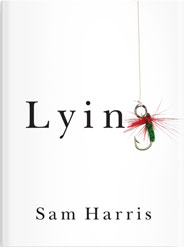
The Internet powerfully enables the spread of good ideas, but it works the same magic for bad ones—and it allows distortions of fact and opinion to become permanent features of our intellectual landscape. Consequently, the migration of our cultural discourse into cyberspace can injure a person’s reputation in ways that may be impossible to remedy.
Anyone familiar with my work knows that I have not shied away from controversy and that many of my views defy easy summary. However, I continue to learn the hard way that if an issue is controversial, and my position cannot be reduced to a simple sentence, my critics will do the work of simplification for me. Topics like torture, recreational drug use, and wealth inequality can provoke outrage and misunderstanding in many audiences. But discussing them online sets your reputation wandering like a child across a battlefield—perpetually. Anything can and will be said at your expense—or falsely attributed to you—today, tomorrow, and years hence. Needless to say, the urge to respond to this malevolence and obfuscation can become irresistible.
The problem, however, is that there is no effective way to respond. Here is a glimpse of what it is like for me to sit at my desk, attempting to write my next book, while persistent and misleading attacks on my work continue to surface on the Internet.






















